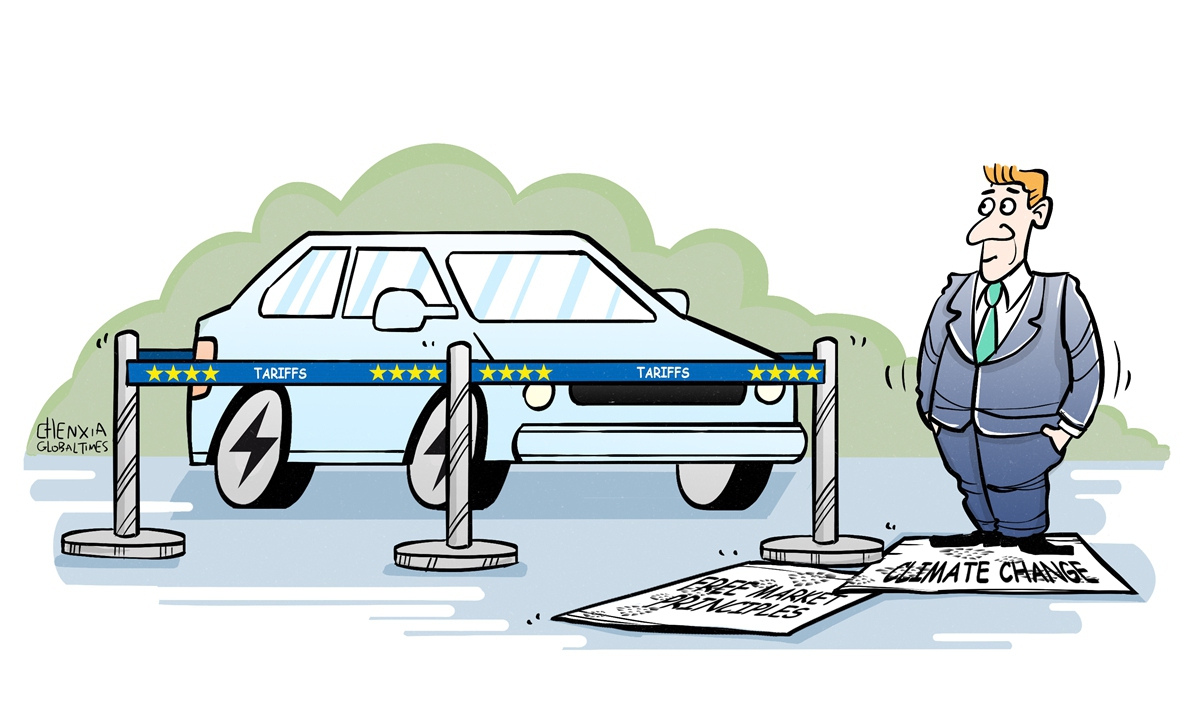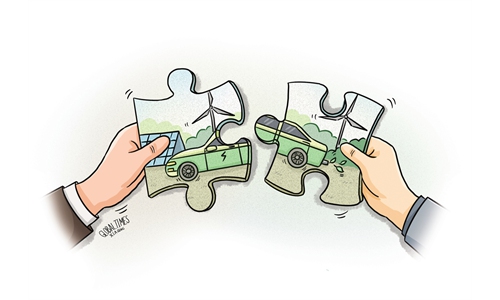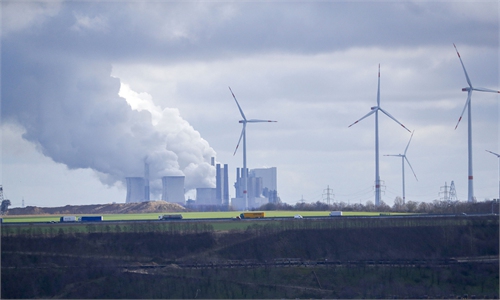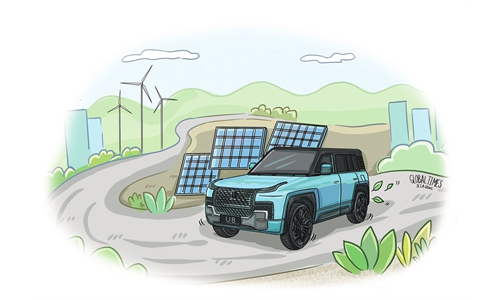
Illustration: Chen Xia/GT
An increasing number of examples indicate that the key to the EU's green transition lies not in imposing trade barriers, but rather in effectively expanding the green consumption market. Only by fostering a robust market for sustainable products and services can the EU support environmental goals and enhance economic growth by creating new markets and job opportunities in the green sector.Renault's Dacia brand cut the price of its low-cost electric vehicle (EV) by 2,000 euros ($2,086) in France, part of a wave of expected discounts in Europe this year to boost stagnant EV sales, Reuters reported on Wednesday.
Automakers in the EU are facing great pressure from the bloc's new emissions rules in 2025, and they are relying on discounts to push more EV sales, which seems to have become a common choice.
Lackluster EV sales in the EU are one of the major reasons for this trend. For instance, data from the European Automobile Manufacturers' Association lobby group shows only 13 percent of all vehicles sold in the region during the first 11 months of 2024 were electric, according to Reuters. This represents quite a gap from the requirement that at least one-fifth of all European sales by most car companies must be EVs.
Meanwhile, the UK surpassed Germany to become Europe's largest electric car market, according to the latest industry data, Bloomberg reported on Monday. The achievement could be due in part to the significant investment by the UK government in infrastructure development to support consumers' switch to EVs. With 56 public chargers added on average to the network every day in 2024, drivers can now rely on more than 72,000 public chargers across the UK, according to a press release issued by the UK government in late December.
Apparently, the extensive deployment of charging stations has alleviated consumers' range anxiety, a common concern among potential EV buyers, laying a solid foundation for the widespread adoption of EVs.
By comparison, the development of EV infrastructure seems to be lagging behind within the EU. This shortfall in charging infrastructure not only dampens consumers' willingness to purchase EVs but also hinders the further growth of the EV market.
Moreover, China's experience in expanding its domestic EV market may provide some insights for the EU. The Chinese government has promoted the development of the EV industry through policy guidance, financial support and infrastructure construction. The extensive network of charging stations, improvements in battery range and reductions in costs have all contributed to making China the largest EV market in the world.
Thus, whether in the EV or renewable energy sectors, the EU's top priority in facilitating a green transition needs to be expanding market demand through policy guidance and infrastructure construction, rather than resorting to shortsighted measures that impede the entry of green products from China.
China's innovation and investment in the green sector have yielded fruitful results, offering support for the green transition of other major carbon-emitting countries and accelerating global green development. Nevertheless, it is regrettable that trade protectionist policies have hindered this progress, creating obstacles for the EU's green transition. An unsatisfactory performance in the green consumption market tends to further invite protectionist tendencies, leading to a vicious cycle.
Through a healthy model of coexistence that balances cooperation and competition, both China and the EU have the potential to work together to continuously expand the EU market, achieving win-win development. This is also why companies from Germany, France and other countries oppose the EU's imposition of tariffs on Chinese EVs.
In the face of unreasonable trade barriers, China has always defended the legitimate rights and interests of its enterprises. China's Ministry of Commerce said on Thursday that the EU's practices in its foreign subsidy investigations against Chinese enterprises have constituted trade and investment barriers.
Additionally, China may file a complaint with the EU through the WTO's dispute resolution mechanism, seeking the withdrawal of these unjust investigations and compensation for the economic losses suffered by Chinese enterprises. Furthermore, China may assist specific companies in pursuing compensation directly from relevant EU institutions or companies through international arbitration or litigation.



